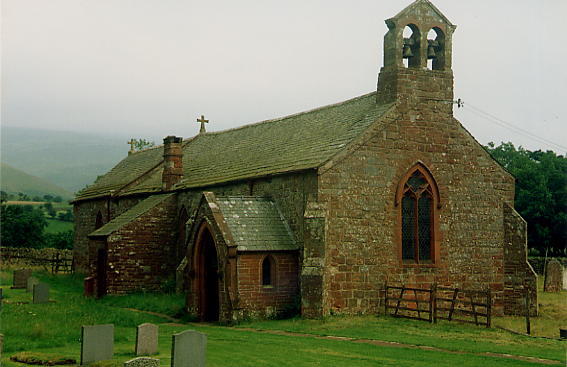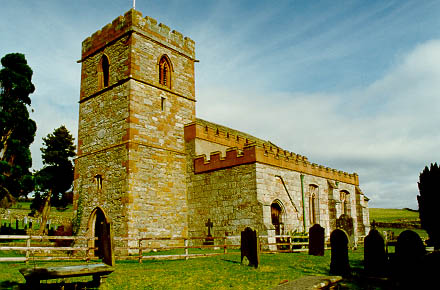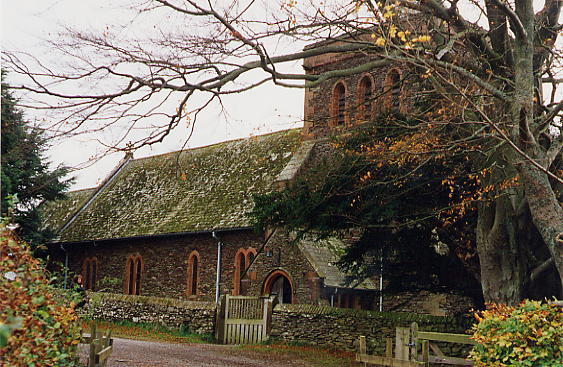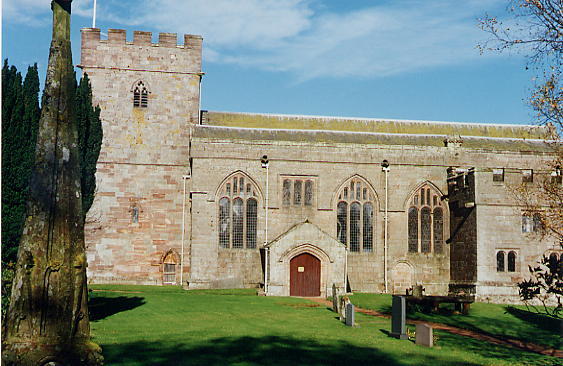
Surname Origin
The Village of Ousby

Inevitably the Housby surname must be a topographic name, reflecting the time before surnames were in common use. We can imagine the new arrival in a village being called Thomas and to identify him from any other Thomases such as Thomas the smith, he would have been known as Thomas of Ousby.
This was an area of Danish settlement in the 700 and 800s and it is therefore not surprising that the placename, Ousby is a name of Scandinavian origin. It comes from the personal name Ulfr with the suffix -by meaning village, ie Ulfr's village. Coincidently there is a village in Sweden called Ousby, named for the same reason, but there is no connection between the two. I only mention this because I have come across the suggestion that we (H)Ousbys all come from Sweden and I would like to stop that red herring dead.
The village of Ousby crops up in medieval documents from time to time and the following examples illustrate the name's evolution:
Vlmesbi 1190 (Pipe Roll)
Ulmsby 1205
Hulvesby 1241 (Pipe Roll)
Ulvisby 1268 (Calendar of Close Roll)
Olvesby 1278 (Assize Roll)
Owsbie 1573 (Feet of Fines)
Ousbie 1576 (Saxton)
Howsbye 1588 (Greystoke Parish Register)
I'll come back to the Greystoke Register and the 'H' below
Evolution of the surname - Hesket in the Forest
Hesket in the Forest is by far the nucleus of the surname. I have located some 400 occurrences of the name between1665 and 1772. The name starts as Owzeby (with the e being optional) linking nicely to the 1573 village name. It changes to Ousby in the 1730s. The first instance of an H comes with a burial of a Thomas Housby in 1729, but the principal use of the H appears on my direct line, namely Thomas Housby, baptised in 1724 as Ousby and marries in 1762 as Housby. Some of his children are bapitised with the H, some without, but all bar one marry and baptise their own children with the H, and that one example is buried as a Housby.
Ousbys continue alongside Housbys during the mid/late 1700s and thereafter. As early as the 1680s (when the registers start) there are two distinct branches of the family, one lot in Lower/Nether Hesket, the other in High Hesket/Old Town, both start of as Owzeby and graduate to Ousby at the same time. I did think that an H may have been added to differentiate the two, but we have to rely on the spelling ability of the local vicar who completed the registers and the confusion during the transition to the H doesn't fill one with confidence. Nevertheless the Low Hesket branch seem to continue to use Ousby.
There are however other groups of (H)Ousbys in the area, all within a stone's throw of the village of Ousby. These may be related to the Hesket line, they may equally just be from the same village and adopted the village name as a surname. But since villages in the Middle Ages were small and isolated, it is probably that most of the people in a village were related in one way or another. Please note I have only researched Hesket, the rest of the info comes from the IGI. As useful as the IGI is, not all parishes and indeed or register volumes have been covered, so 'absence of proof is not proof of absence'.
Penrith
Penrith has the earliest group of some 44 occurrences in the records. The earliest is a marriage in 1571 of a 'Housbie' The name generally takes the form Ousbie, changing to Ousby in the 1630s (earlier than Hesket), but Hs do pop up from time to time. Also the name appears as Asbie and Asby. Those illiterate vicars again! The name continues up to 1840s predominantly as Ousby, but with occasional Hs and and 'ley's to confuse matters further. The IGI has a gap between 1633 and 1692, but otherwise the spacing is quite regular
Dacre

Another early group of 20 occurrences, the first being a baptism in 1583 of a Thomasine Howsebye. The name continues as Howsby (with differing numbers of 'e's) down to the 1700s when we get Ousbys, although by the early 1800s Housbys make a comeback. There is a gap between 1617 and 1783 (with just one in 1705) so I assume the IGI coverage is incomplete.
Watermillock

The first of the 21 occurrences here is in 1611 with the marriage of Margaret Howlsby, the w changes to a u within a generation and by 1669 has become Housby, although from 1679 onwards it becomes exclusively Ousby. The spacing of the individuals is quite regular from 1611 to 1741, so the IGI looks ok, and I think we probably have a single small family group.
Greystoke

Ah the parish responsible for giving the village an H! Only 5 here, the first being Thomeson Howsbye in 1603 (so there must be another in 1588 see above). Alas he is the only H, the rest being Ousbys. There is a big gap between 1603 and 1784 so I assume the IGI coverage is incomplete.
Conclusion
Well the H really does come and go, curiously most family groups seem to start with an H then lose it, whereas the Hesket group do it the other way round. The z is interesting in that it is virtually specific to the early Hesket group. I'm not sure about the rest of you (H)Ousbys out there but I pronounce my name with a hard s, houz-by, rather than house-by, is this 300 year preservation of the original spelling? But lets face it, the vicars were the only ones who could write and since the owner of the name could only pronounce it, the vicar will have spelt it phonetically, change of vicar, change of spelling. Dialects also change over time affecting pronounciation. Anyway how many people spell it wrong even now, having Elizabeth Housby baptised under that name in 1669 in Watermillock, fills me with some sense of awe, even if you Ousbys can go back to John Ousby marrying in 1633 in Penrith.